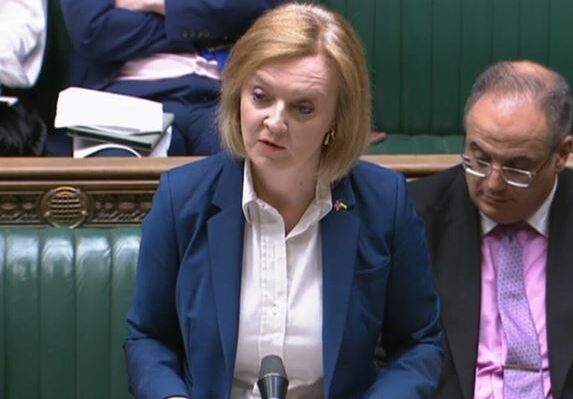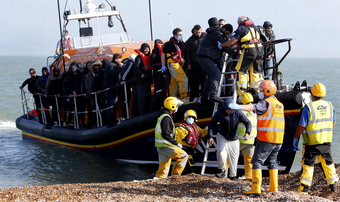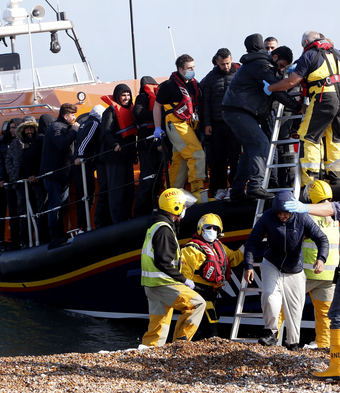Conservative Party Conference: Who are the new Cabinet?

It has been a whirlwind first month for our new Prime Minister Liz Truss, but amid all the turmoil of the last few weeks, you might have missed who the key players are in the new Cabinet until they started receiving higher profiles this week at the Conservative Party Conference.
With a fairly comprehensive clear out of existing Ministers, Ms Truss set to work filling both Cabinet and ministerial posts shortly after her appointment as Prime Minister.
Most of the focus over the next few months will be on the big jobs – Chancellor, Foreign Secretary, Home Secretary – but it’s also important to look closely at more junior ministers. In many cases, junior ministers carry an enormous workload and are in positions of significant influence – including on some of the causes CARE is passionate about.
The Major Players
The Prime Minister has described herself as ‘[sharing] the values of the Christian faith and the Church of England, but I’m not a regular practising religious person.’ Her voting record on issues of beginning and end of life have, thus far, been disappointing. The man replacing Liz Truss in the Foreign Office, James Cleverly, has in recent years largely chosen to abstain when beginning of life issues have been debated in the Commons (though has voted in favour of regulations giving the NI Secretary powers to enable commissioning of abortion services in NI); however, he has voted against provisions seeking to introduce assisted suicide.
Suella Braverman, herself a leadership contender, has been promoted from Attorney General to Home Secretary. When outside the government, she has abstained or voted against abortion and assisted suicide motions, amendments or legislation. However, she is on record as stating that if the court prevents the implementation of the Rwanda policy (which concerns the relocation of asylum seekers), consideration should be given to the UK’s withdrawal from the European Convention on Human Rights (ECHR). CARE has considerable concerns about the implications of the Rwanda scheme for victims of human trafficking, who are not exempt from this policy.
The new Chancellor, Kwasi Kwarteng, has long been a rising star in the Conservative party. He is known to be openly sceptical of university education, and has spoken widely on the need for cultural change. He has consistently abstained in votes on both end and beginning of life issues – including in relation to changes to abortion law in Northern Ireland.
Thérèse Coffey, a longstanding ally of Liz Truss, has been appointed Deputy Prime Minister and Health Secretary. Coffey is a committed Catholic. Following her appointment, the BBC immediately published a story citing various abortion charities who expressed concern at Coffey’s views. She’s said about abortion: “I wish no one had one, but I won’t condemn anyone who has”.
Other appointments to note
Michelle Donelan, Culture Secretary
The much-criticised Online Safety Bill comes under Donelan’s remit. It will be interesting to see whether she makes the changes needed to safeguard free speech. CARE has campaigned for age checks on all online pornography, which is part of the Bill. Last time similar measures were passed by MPs and Peers, the Government controversially ditched them. Donelan has spoken out about Christian persecution and against cancel culture at universities.
Ranil Jayawardena, Environment Secretary
Jayawardena has been supportive of policies designed to support and strengthen families, including CARE’s work on tackling inequalities within our tax system. He’s the former Director of the Conservative Christian Fellowship and has led calls for a Cabinet level Family Minister to ensure domestic policy priorities families.
Jacob Rees-Mogg, Business Secretary
Another committed Catholic who has said abortion is ‘morally indefensible’ and has taken strong positions against germline editing and ‘designer babies’.
Kemi Badenoch, International Trade Secretary
Badenoch is seen by some as a rising star with future leadership potential. She has been outspoken on several so-called “culture war” issues, publicly saying that trans women are not women. She is from a Christian background.
The Nations
There is no change in the Scottish or Welsh office with both Alister Jack and Robert Buckland remaining in post. Robert Buckland has consistently been a supporter of the policy positions advocated by CARE and it is welcome that he has remained as Secretary of State for Wales. Alister Jack’s views are largely unknown.
Once again there is change in Northern Ireland, with Chris Heaton-Harris, an ardent Brexiteer, charged with getting Stormont up and running again. His views on CARE’s issues is largely unknown, but we can be hopeful that a change of Secretary of State may bring a change in the direction pursued by his predecessor.






